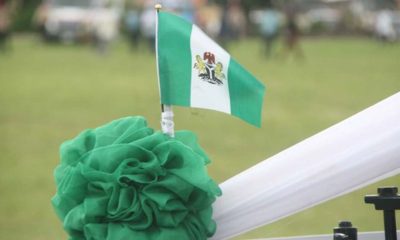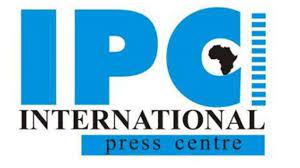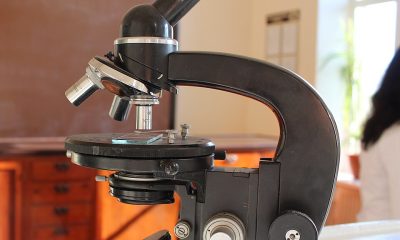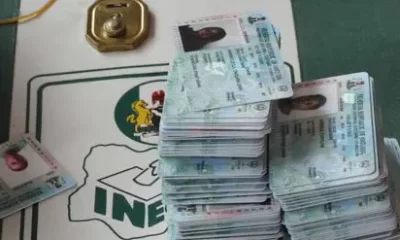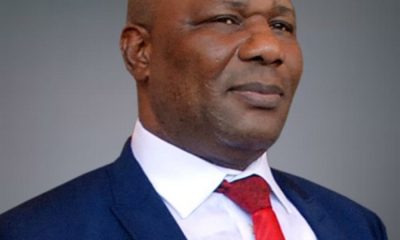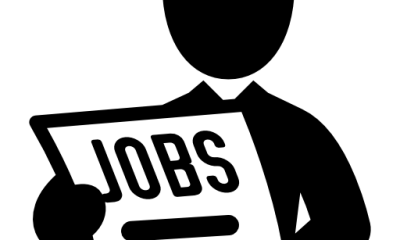Foreign News
Nigeria, Ghana Other African Countries Urge USA to Hands- Off Cuba
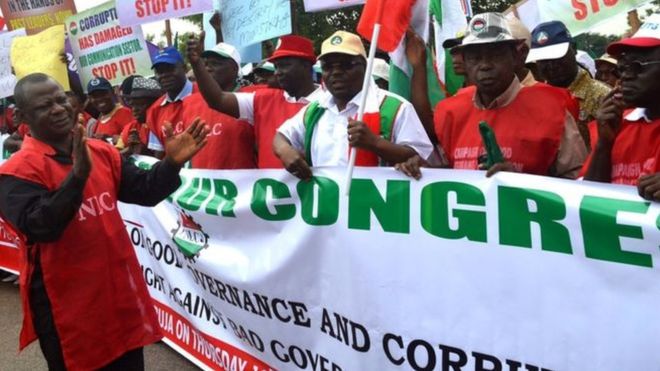
By Gom Mirian, Abuja
Four African nations, including Nigeria, Ghana, Tanzania and Gambia on Monday converged on Abuja to join their voices in demand for the lifting of sanctions imposed on the Republic of Cuba by the United States of America(USA).
The president of the Nigerian labour congress (NLC), Comrade Ayuba Wabba said this at the opening ceremony of the 6th Solidarity with Cuba meeting held at Yar’Adua Centre, to pressure the USA government to lift its over 50-year blockade on Cuba.
The three days event is expected to end on Wednesday, September 25, with a solidarity protest march to the USA Embassy in Nigeria with the demand to the USA government to ‘Hand Off Cuba”.
According to Comrade Waba, the celebration of Cuba and its friendship with the African people cannot be complete without speaking up strongly for them.
He said motivation for the meeting was to affirm international support and solidarity with Cuba and to demand respect for Cuba’s right to self-determination and sovereignty.
“For the umpteenth time, we call on the United States and its western allies to lift the economic blockade against the people of Cuba.
“The thought that Cuba will collapse after a few years has now been debunked by the resilience of the Cuban people these past sixty years and counting.
“We believe that if the Cuban people and government could build such great education, health and public service institutions in spite of decades of blockade, Cuba will compete with the most advanced countries of the world if the prison doors are opened.
“We also call on western countries to quit interfering in the sovereignty of nations.”
Wabba added that Africa was not in true solidarity with Cuba if she fails to show love to other Africans.
He noted that the recent xenophobic attacks in South Africa would not have happened, if the region truly share in the Cuban ideals of a shared humanity.
Also speaking, the Minister of Science and Technology, Dr Ogbonnaya Onu, noted that Cuba had made efforts in times past to help African countries in their time of need.
Onu said the NLC has shown commitment with the solidarity mandate, thanking the union for efforts to raise consciousness about the sacrifice of Cuba for independence of some countries.
The Minister noted that during the Ebola pandemic, Cuba sent no fewer than 400 doctors to African countries to curb the spread, calling on Nigerians to imbibe culture of patriotism and self reliant.
“Nigeria must do more to lead Africa and other countries globally, we must put the Xenophobic attack from South Africa aside and provide the needed leadership for liberation of Africa.
” When we do this, it will help to provide leadership, a new civilisation to rise, stronger and respected all over the world.
In his remarks, the chairman of the occasion, Mr. Dipo Fashina, said “we have to cement our belief that Cuba must be defended. Cuba must surmount the revolution there.
Foreign News
Australian Researchers Launch Open-source, Affordable DNA Measurement Device

Australian researchers have created an affordable, open-source device to measure DNA levels using parts made with a standard 3D printer.
The Do-It-Yourself Nucleic Acid Fluorometer (DIYNAFLUOR) offers an affordable alternative to expensive commercial DNA fluorometers, often out of reach for many researchers.
This is according to a statement released on Wednesday by Australia’s University of Queensland (UQ), which led the research.
Fluorometers, vital for DNA sequencing, which itself is essential for disease detection, therapeutic innovation, and species identification, can now be easily built at home.
Thanks to the simple, accessible device developed by UQ’s Australian Institute for Bioengineering and Nanotechnology (AIBN), the statement said.
The device can be built in under a day for around 60 Australian dollars (about 39 dollars) using off-the-shelf electronics and 3D-printed parts.
It’s with free instructions online and no need for advanced skills or specialised tools, said the designer of the device, Will Anderson, at the AIBN.
Once built, the device quantifies DNA by using a light beam to produce a fluorescent response from the dyed DNA present in the sample.
It would then report the DNA concentration to a connected computer, Anderson said.
“This is crucial information that can tell you whether you can proceed with more expensive tests and sequencing,” he added.
Laboratory tests confirmed the device matches the accuracy and sensitivity of costly commercial models, offering an affordable, open-source solution for researchers in resource-limited, remote, or educational settings, said the study.
Foreign News
Trump Imposes 25% Tariff on Indian Goods, Criticizes Ties with Russia

U.S. President Donald Trump said he is imposing a 25 per cent tariff on goods from India starting on Friday.
Writing on his Truth Social platform, Trump sharply criticises New Delhi for its military and energy ties with Russia.
He described India as a “friend” but accused the country of maintaining unfair trade practices that disadvantage U.
S. businesses.India has “strenuous and obnoxious” trade barriers that keep its markets closed to companies, he wrote, adding that its tariffs are “far too high.
”Trump also took aim at India’s relationship with Russia, saying: “They have always bought a vast majority of their military equipment from Russia, and are Russia’s largest buyer of ENERGY, along with China.
In addition to the new tariff, Trump said India would face a financial “penalty” for its purchases from Russia, though he did not provide further details.
Foreign News
Zelensky Announces New Draft Law on Anti-corruption Bodies after Protests

Ukrainian President Volodymyr Zelensky said he has approved the text of a draft law guaranteeing the freedom of two anti-corruption bodies in Ukraine – days after nationwide protests broke out over changes curbing their independence.
Kyiv’s Western partners had also expressed serious concerns over the legislation.
On Thursday, Zelensky seemed to backtrack, saying the new bill was intended to safeguard the independence of Ukraine’s National Anti-Corruption Bureau (Nabu) and Specialised Anti-Corruption Prosecutor’s Office (Sap), and to protect them from Russian influence.
He said the text of the bill was “balanced”, but did not provide any details.
The law passed earlier this week brought Nabu and Sap under the control of the prosecutor general, who is appointed by the president.
At the time Zelensky justified his decision to curtail the bodies’ powers by citing Russian influence. The day before, Ukraine’s security services had carried out searches and arrests targeting alleged Russian spies at the agency.
The passing of the legislation instantly sparked the largest protests since the start of Russia’s full-scale invasion in February 2022 in several cities across Ukraine, with many worrying the law would severely undermine the Nabu and Sap’s authority and effectiveness.
Thousands of people gathered in streets and squares across Ukraine, holding placards calling for the legislation to be vetoed.
Several commentators accused Zelensky of democratic backsliding. Their concerns were further exacerbated when Ukraine’s Western partners signalled their displeasure with the bill.
Ukraine has official EU candidate status and a spokesman for European Commission chief Ursula von der Leyen previously warned Kyiv that the rule of law and the fight against corruption were “core elements” of membership to the bloc.
On Thursday, the Commission said it “welcomed” the Ukrainian government’s decision to take action against the bill.
“We are working [with the Ukrainian government] to make sure that our concerns… are indeed taken into account,” the spokesman said.
Nabu and Sap were created in 2014-15 as one of the requirements set by the European Commission and International Monetary Fund to move towards a relaxation of visa restrictions between Ukraine and the EU.
Writing on Facebook, opposition MP Oleksiy Goncharenko noted Zelensky said that “the independence of anti-corruption institutions must be guaranteed.”
“First we take it away, and then we say that it must be guaranteed. So why was all this necessary?”
In his message on social media on Thursday, Zelensky did not acknowledge the protests or the backlash but said it was “important that we respect the position of all Ukrainians and are grateful to everyone who stands with Ukraine.”

